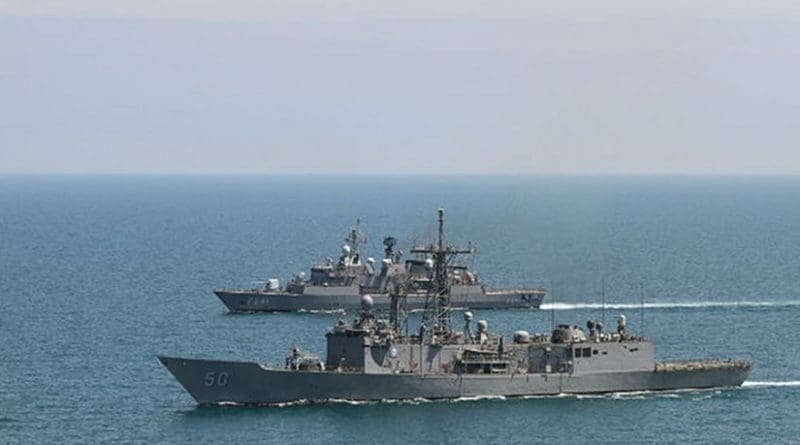Dissent In Bulgaria Over NATO Black Sea Plans
By Mariya Cheresheva
NATO’s commitment to increasing its presence in the Black Sea region has sparked bitter quarrels between Bulgaria’s main parties as they gear up for general elections in March.
Bulgarian President Rumen Radev has dismissed claims made on Monday by Boyko Borissov, – the former prime minister and leader of the centre-right GERB party – that the country’s interim government had damaged the national interest by agreeing to allow more NATO forces in the Black Sea.
On Facebook on Tuesday the President rejected Borissov’s claims that, during the NATO summit on February 15-16, the government green-lighted Bulgaria’s participation in a permanent Black Sea alliance patrol – an idea that Borissov rejected last June.
“The planned NATO military trainings in the Black Sea, agreed at the meeting in Warsaw in July 2016, have nothing to do with the so-called Black Sea flotilla,” Radev, a former air-force general, said.
He recalled that such training exercises are carried out regularly and that no one has either “allowed” or “banned” them.
The President suggested that Bulgarian politicians were speculating about the issues of joint air-policing and NATO military training in order to score points ahead of the early parliamentary elections on March 26.
“All political forces engaged with the upcoming elections should know that the topic of security does not allow for incompetence and has to be discussed with extreme responsibility,” Radev noted.
Despite the President’s advice, arguments over NATO are likely to be at the heart of the electoral campaign, with both main parties – GERB and the Bulgarian Socialist Party, BSP, accusing each of breaching Bulgaria’s national interests by honouring its commitments as a member of the Euro-Atlantic alliance.
During the meeting of NATO defence ministers last week, an agreement was reached on strengthening NATO’s air and land position in the Black Sea region.
Two additional maritime measures were also approved: an increased NATO naval presence in the Black Sea for enhanced training, exercises and situational awareness, and a maritime coordination function for the Standing Naval Forces when operating with other Allied forces in the area.
On Monday, however, Borissov recalled his role in “resisting” Bulgaria’s participation in a joint Black Sea patrol with Romania and Turkey.
“Now we are being included, we had air policing, now we have a flotilla, foreign ships … Now we are being put in a very delicate situation”, he said, recalling his stated dream of seeing only “sailboats, yachts and a gas pipeline” in the Black Sea.
In response, BSP leader Korneliya Ninova on Tuesday accused Borissov of changing his position. “Yesterday’s hawk Borissov is trying to turn into a sparrow today, but it is not working,” she said.
She added that she was against Bulgaria and the Black Sea being used “as a springboard for aggression”, presumably by NATO.
The disputes about Bulgaria’s role in NATO operations forced the Defence Ministry on Tuesday to remind people that all of Bulgaria’s recent actions are a result of agreements reached during the NATO summit in Warsaw in 2016 under the former government led by Borissov.
A ministry spokesperson confirmed to BIRN that Bulgaria had made no commitment to participating in a permanent Black Sea flotilla.
She explained that the navy will participate in several training exercises in the Black Sea, jointly with other NATO countries, while for 2017 the country is not planning any major international naval exercises, such as the Black Sea Breeze, which took place near the coastal city of Burgas last July.


Under the Guise of NATO the historical anti-slavic eastward expansion continues!